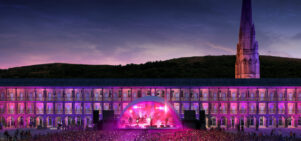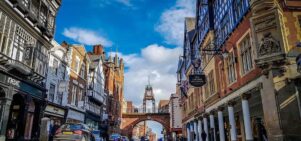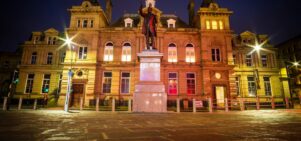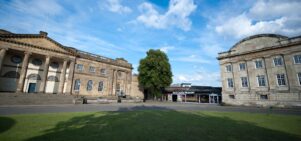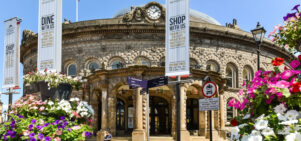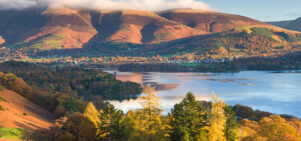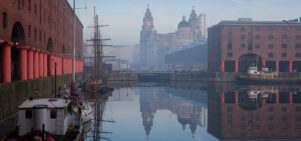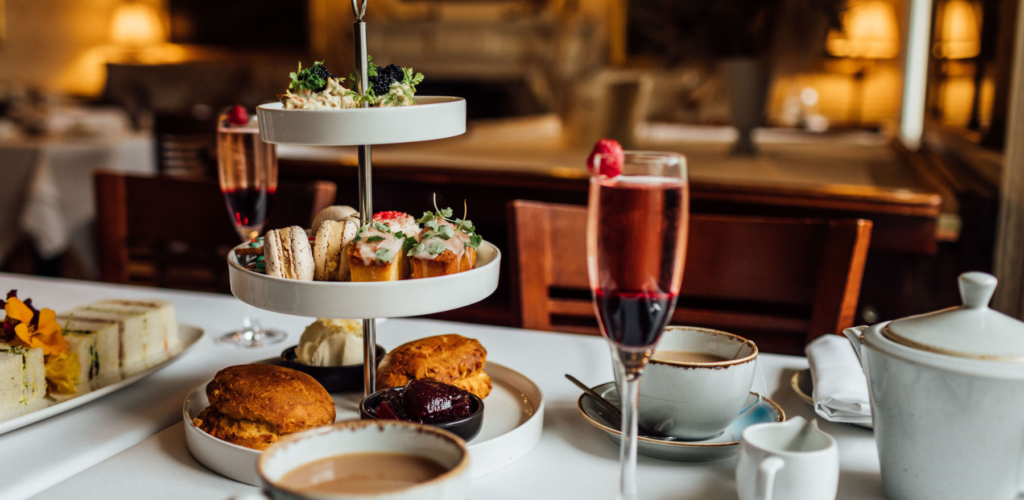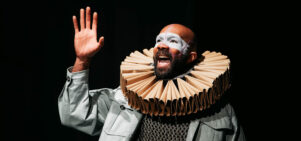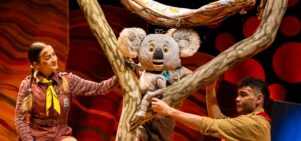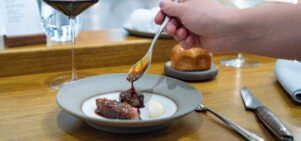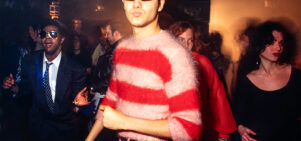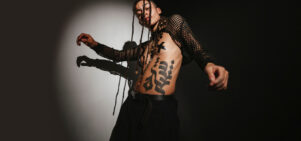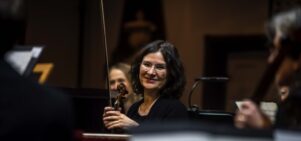Manchester Histories Festival, preview: Bringing the past bang up to date
Suzy PrinceThe biennial Manchester Histories Festival returns – bringing a feminist cycle tour, an alternative future for Manchester and a special celebration day with it.
Think of a history festival, and chances are that you’ll envisage historical re-enactment, canons, usually some royalty and maybe a few slightly dry and dusty exhibitions. Manchester Histories Festival (3-12 June) does things rather differently, with online games, a queer review, reggae in the city and telling the stories of ordinary people.
The festival features more than 180 events over ten days, aiming to celebrate the familiar – and also to reveal new and hidden histories in Greater Manchester. You’ll find the full line-up on the Histories Festival website, but to get you started, here are just some of our top picks.
Landscapes of Identity Symposium
Some of the city’s great cultural institutions are working together to present a Landscapes of Identity Symposium: Mapping the Place Identity of Manchester. As the twentieth anniversary of the 1996 bombing approaches, this event on 18 May (so taking place before the main body of the festival) is a trailblazer for the rest of the activities. The symposium will feature talks, discussions and debate that centre on the strategic roles of heritage, design, art and culture in shaping Manchester’s identity and placemaking. There’s even a free short tour round the area affected by the IRA bomb blast of 1996 by Blue Badge Guide Jonathan Schofield (book here). The National Football Museum, 18 May, 11am-5pm, tickets £5 / £3 Conc.
[mini_cta override=”BOOK NOW”/]
M-Histories Weekender
The second edition of the M-Histories weekender takes places on 3-4 June From 9.30am-6pm at Coffee Nubia and will be celebrating Moss Side’s international heritage with exhibitions, events and activities. Coffee Nubia, 3-4 June, 9.30am-6pm, free
The Battle for the Ballot
Also on 4 June, over at the People’s History Museum, singer-songwriter Quiet Loner tells the story of how working people came to have a vote. Using music and imagery, this show straddles the centuries to show how the right to vote was won. Beginning with the Industrial Revolution, the story will take in key events such as the Peterloo Massacre, as well as exploring the notion of Universal Suffrage. People’s History Museum, 4 June, 2pm-3pm, free but booking essential
[mini_cta override=”BOOK NOW”/]
Radical Hero: An Audience with Betty Tebbs
Also at the People’s History Museum, on the evening of 9 June, attendees will be lucky enough to enjoy an audience with Betty Tebbs. Now 98 years old, Betty has spent much of her life working tirelessly for women’s rights, worker’s rights and the campaign for peace. In the 1950s she successfully led women in the first ever strike for equal pay, and at the tender age of 89 was arrested for her anti-Trident protests. This event is likely to get booked up, so be quick if you want a ticket. People’s History Museum, 9 June, 6pm-8pm, free but booking essential
[mini_cta override=”BOOK NOW”/]
Music in Manchester During WWI
The Royal Northern College of Music is displaying previously unseen items from its archives, in anticipation of presentations on 5 June around the making of music in Manchester during the first world war. There will also be a recreation of Debussy’s sonata for cello and piano, a concert performed during that war, by current students. Royal Northern College of Music, 5 June, 11am-4pm, free
Making Manchester exhibition
Just up the road from here, at the Manchester Technology Centre, and on display throughout the festival you’ll find a new exhibition around the subject of Making Manchester. The twist here is that this exhibition showcases visions of the future of Manchester that never actually happened, from elevated pedestrian walkways and monorails to moving pavements and responsive facades. These visions will be brought to life for the first time through digitally recreated gaming environments, alongside original archive materials and plans from 1960-75. Oxford House, Manchester Technology Centre, 3-10 June, 9am-5.30pm, free
Celebration Day
On 11 June, from 10.30am-4pm, almost 100 history and heritage organisations from across Greater Manchester – from Jodrell Bank and The Greater Manchester Fire service Museum to The Royal National Lifeboat Institute – are convening at the town hall for the Histories Festival Celebration Day. Featuring exhibition stands, games, heritage bus rides, craft activities, film screenings, performances and talks, this event offers something for all the family, and for people of all ages and interests. Manchester Town Hall, 11 June, 10.30am-4pm, free
Manchester and the Peppered Moth
If you’re not too exhausted from the celebration day, head down to Manchester Museum on the same day to hear genetics expert Professor Laurence Cook and head of collections Henry McGhie talk about the evolution of the peppered moth and its links to Manchester’s history. In a nutshell, during the industrial revolution, the moth evolved and developed black speckled wings, reflecting the soot and general dirt and grime of the environment around it. Its story and evolution is very much tied up with that of Manchester itself. Manchester Museum, 11 June, 3pm-4pm, free but booking essential
[mini_cta override=”BOOK NOW”/]
WoManchester Cycle Tour
On 12 June, meet outside the Town Hall at 11am and take part in the WoManchester project’s six mile guided cycle tour, visiting sites associated with the six women, including Emmeline Pankhurst and Elizabeth Gaskell, shortlisted for a new statue. Along the way you’ll hear stories and songs about these women, and will see many of the sights of Manchester as you ride. Meet at Manchester Town Hall, 12 June, 11am-2pm, tickets £15
[mini_cta override=”BOOK NOW”/]
Manchester Ballads
Finish off your week (or more) of wonder at Band on the Wall, which from 1pm-5.30pm on 12 June is hosting a day of performances, films, exhibitions and talks from all around the subject of Manchester Ballads. In the 19th century the news was presented as single sheets of paper printed with a ballad to be sung of the day’s happenings: you can see a large collection of these at Chetham’s library, and Manchester was one of the most important points for this cheaply produced street literature. Speakers such as speakers such as social archaeologist David Jennings and folk singers Mark Dowding and Chris Pollington will discuss and recreate these important social documents. Band on the Wall, 12 June, 1pm-5.30pm, free
With such an overwhelming (in a good way) choice of activities we’d suggest that you take a look at the full event listings and get planning sooner rather than later.

